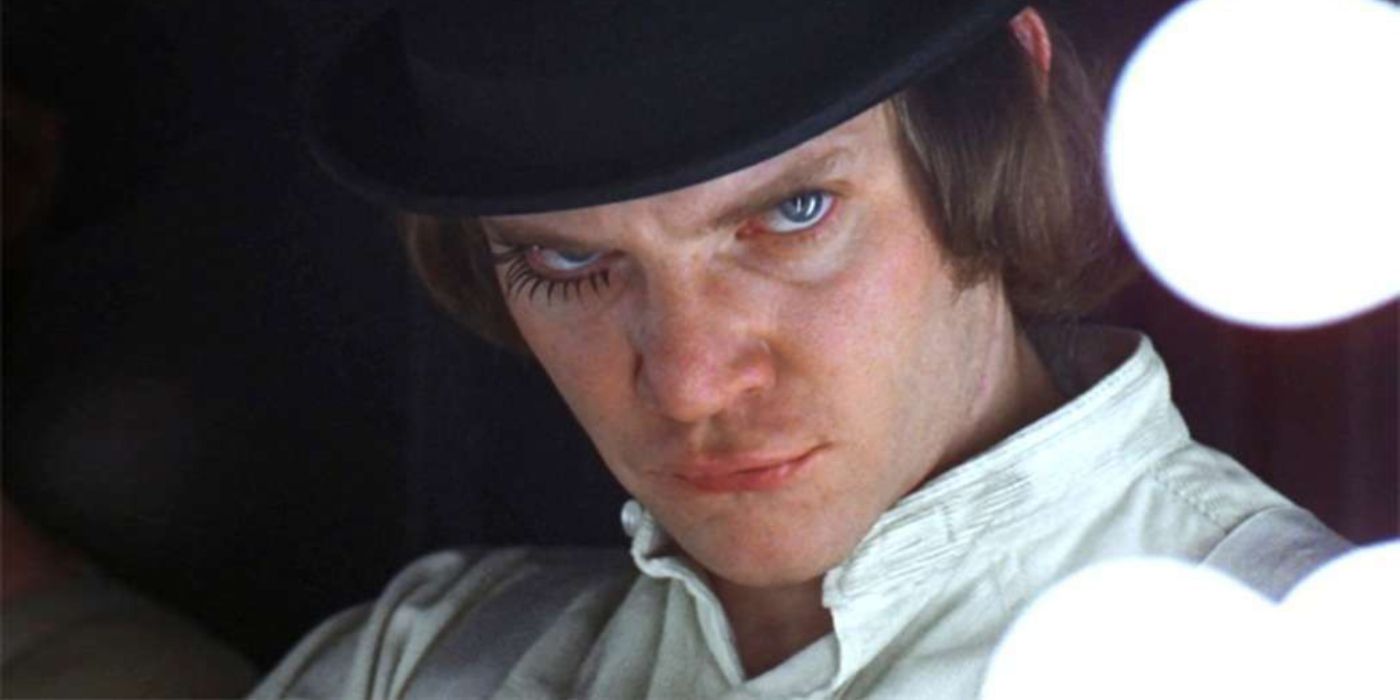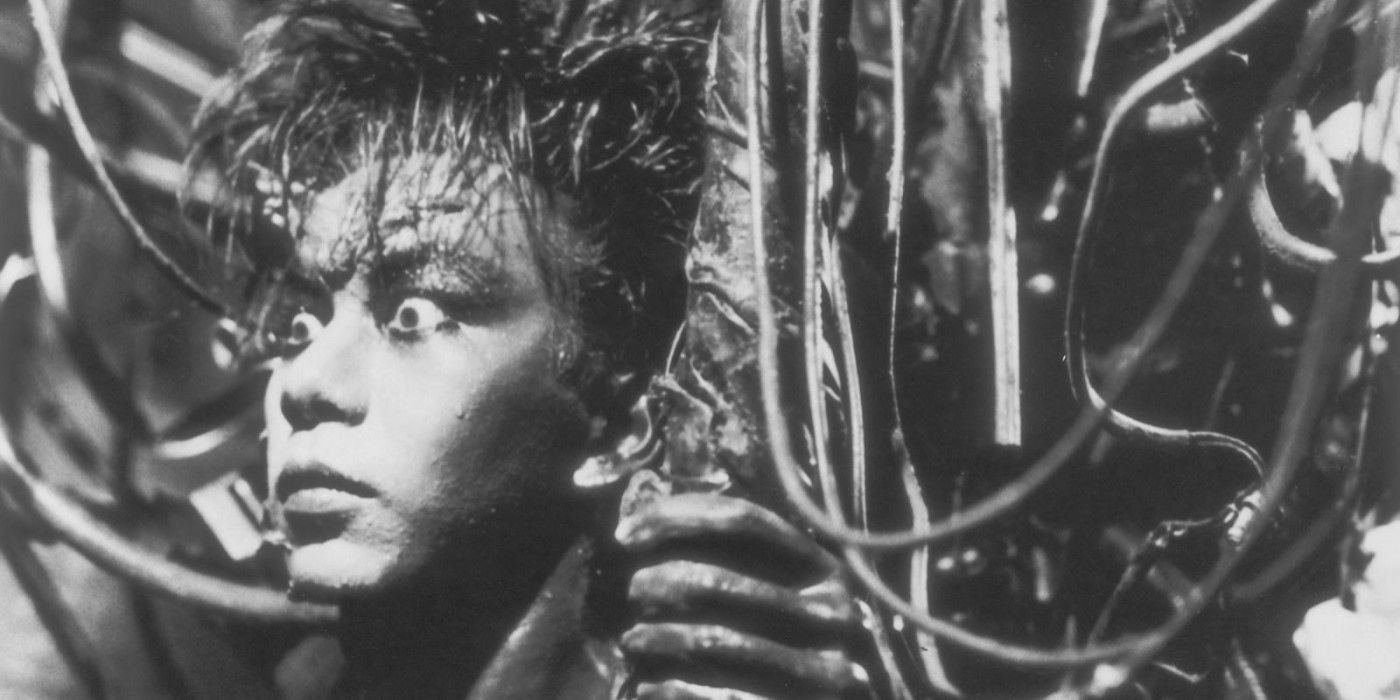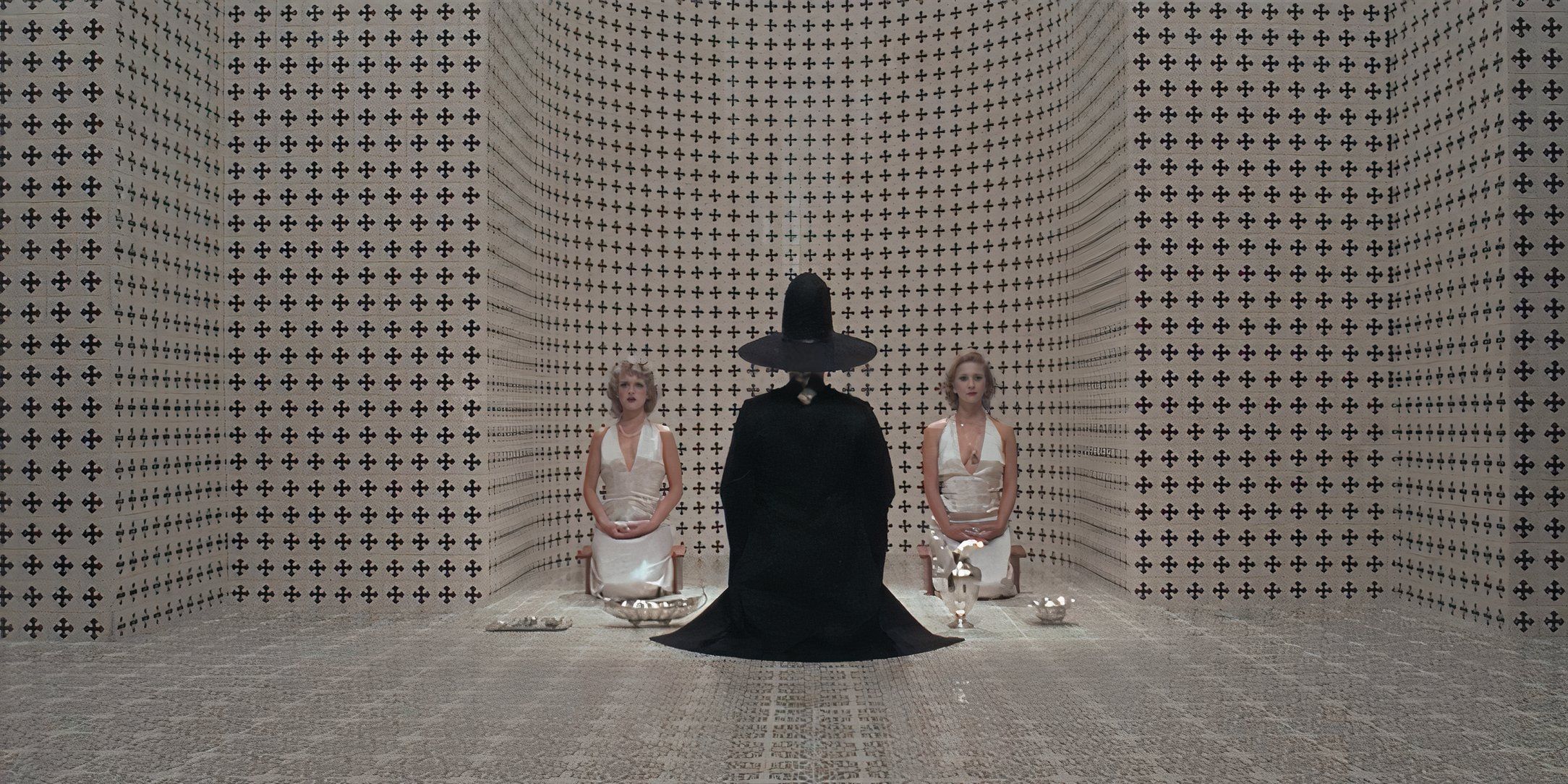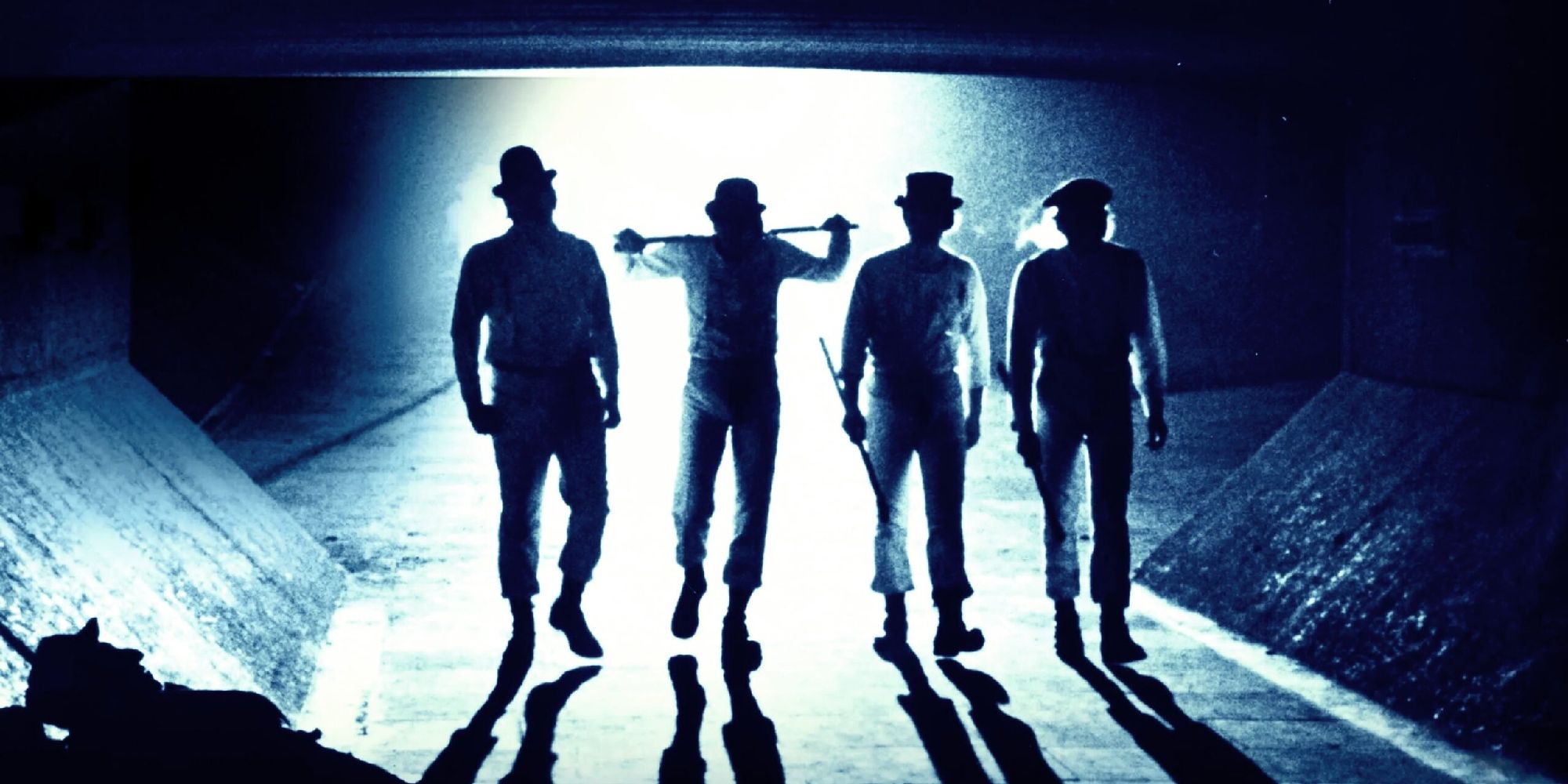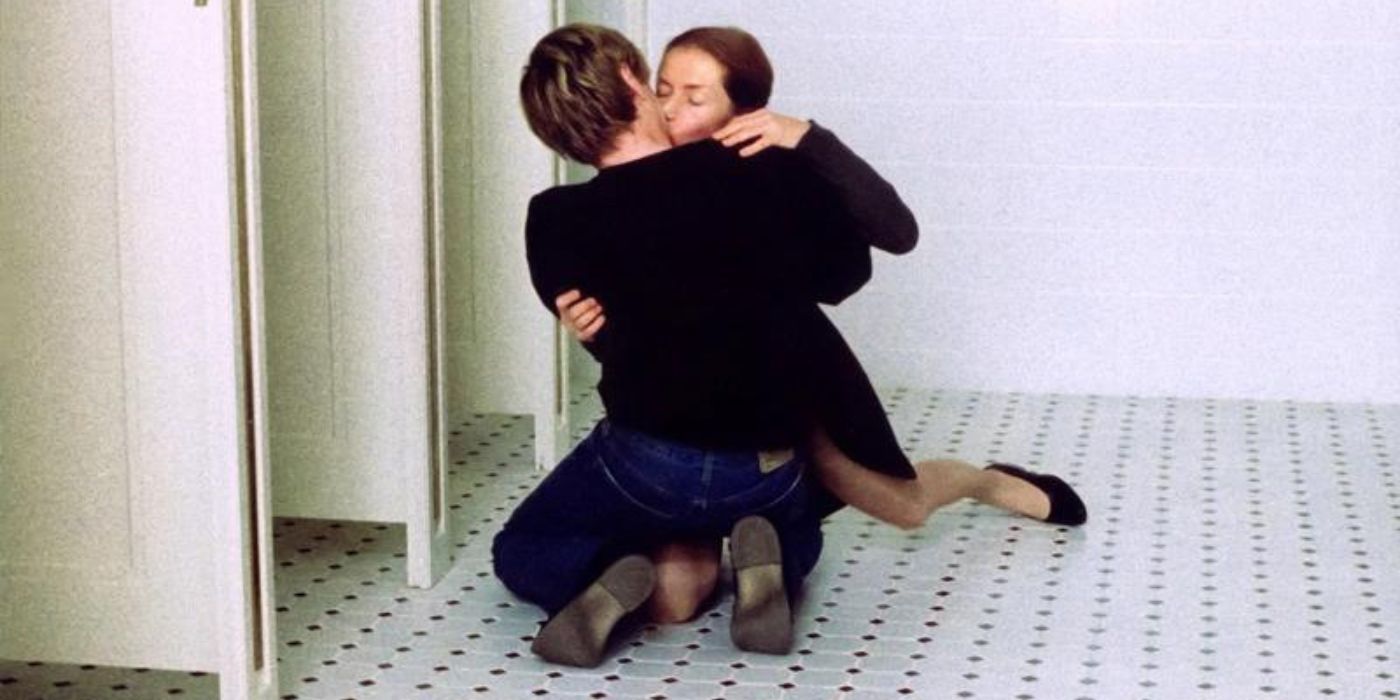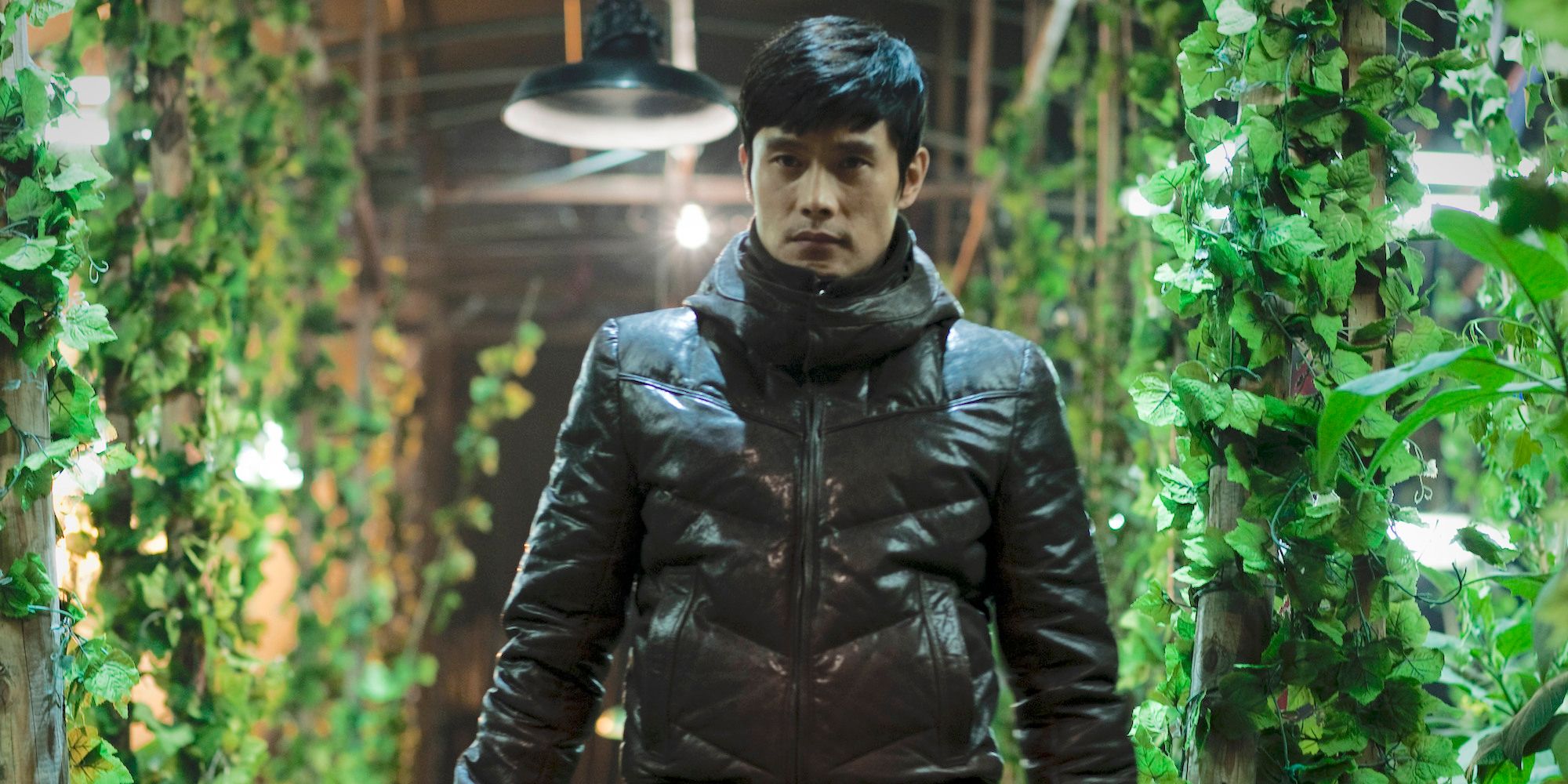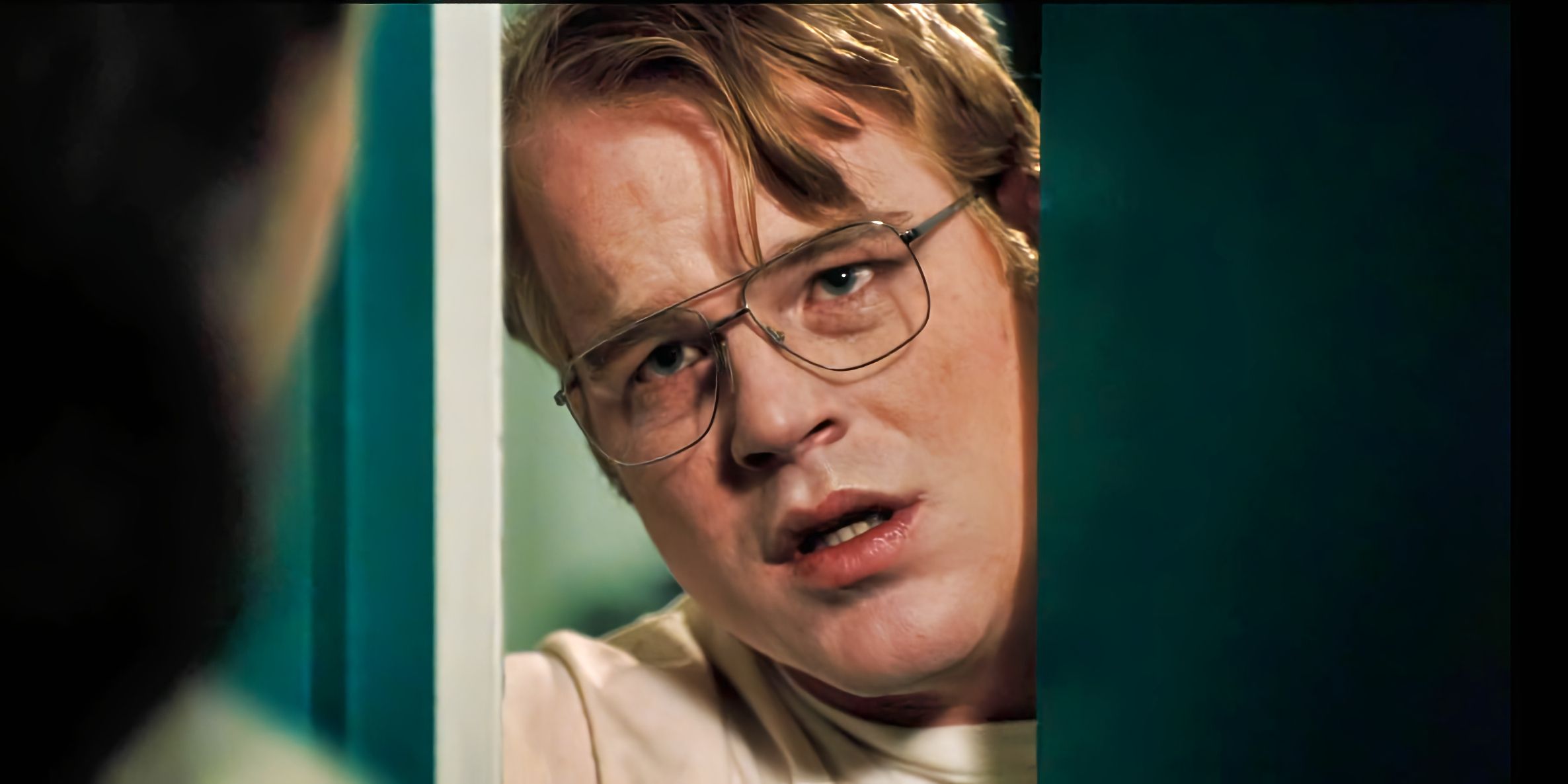There’s a quote relating to art about how it should disturb the comfortable and comfort the disturbed, and it speaks for itself, relating to both cinema and other types of art more generally. It’s attributed to César A. Cruz, though it might be more famously associated with Banksy, who repeated it, but either way, it means what it means. If a work of art wants to change attitudes or discuss confronting things, those who aren’t aware should be disturbed and alarmed, and those who can relate may take comfort in seeing such things addressed.
But then there are also works of art that are so full-on or challenging, they might well disturb everyone, which is sort of equalizing, when you think about it. Put another way, these are just particularly disturbing, confronting, or eye-opening films, though some might still disturb the comfortable to a greater extent than they’ll disturb the disturbed.
10
‘An Elephant Sitting Still’ (2018)
Directed by Hu Bo
A film that’s long, sad, and unbelievably heavy, even without taking into account the tragic story behind its director, An Elephant Sitting Still asks a great deal of you, as a viewer. It’s a drama about several struggling people that unfolds slowly across a runtime that nears four hours, making you sit with some confronting ideas and emotions for basically an entire evening. And, even if not a whole evening, you’ll probably feel too exhausted afterward to do much with the time you have left.
It lays bare some rather mundane – yet still devastating – issues and conflicts, and the sense of hopelessness throughout is crushing. To some extent, An Elephant Sitting Still is an empathetic movie, because the slow-paced approach and grounded nature of it all makes it easy to feel what the characters are feeling, but it’s still a hugely taxing film no matter how comfortable or disturbed you may otherwise be.
9
‘Twin Peaks: Fire Walk with Me’ (1992)
Directed by David Lynch
Of all the David Lynch films out there, there’s a good argument to be made that Twin Peaks: Fire Walk with Me is his heaviest and least hopeful. It builds to an inevitable tragedy, given that most of it’s a prequel to Twin Peaks, and that show began with the murder of Laura Palmer, but it’s the execution of the nightmarish journey there that makes the whole film all the more confronting.
It does humanize a character who, because of her death, wasn’t physically in Twin Peaks a great deal, but there’s little by way of hope here for anyone expecting conventional closure after the second season of the show got canceled. Further, the fact it didn’t have to stick to network TV restrictions meant Twin Peaks: Fire Walk with Me was a great deal more graphic; not in an exploitative way or anything, but it was nonetheless shocking.
8
‘Tetsuo: The Iron Man’ (1989)
Directed by Shinya Tsukamoto
If you know one body horror-focused filmmaker, it’s probably David Cronenberg, but if you know two, that second one might well be Shinya Tsukamoto. And his most famous work in this particular horror sub-genre was Tetsuo: The Iron Man, which is a film as dizzying and gross as it is short, and it’s extremely short by feature film standards, clocking in at just 67 minutes.
Tetsuo: The Iron Man is gooey and gruesome, but it’s also extra confronting to experience because of how it’s filmed and edited. It’s abrasive, loud, stomach-churning, and chaotic.
After accidentally running someone over, a businessman finds himself with some kind of curse or condition that has his body slowly turning metallic, becoming, you know, like an iron man (but not the Marvel kind). Tetsuo: The Iron Man is gooey and gruesome, but it’s also extra confronting to experience because of how it’s filmed and edited. It’s abrasive, loud, stomach-churning, and chaotic, and even those who like twisted films will probably come away from this one with some kind of headache.
7
‘The Holy Mountain’ (1973)
Directed by Alejandro Jodorowsky
As far as content goes, there might be Alejandro Jodorowsky films that are technically more disturbing than The Holy Mountain, but there’s still plenty of unsettling imagery here. What’s arguably more challenging about The Holy Mountain, though, is how ultimately existential and mind-bending it is, asking tons of questions about existence and the meaning of life, but offering few answers.
But also, if you connect with The Holy Mountain in a different way, maybe you will find it enlightening or eye-opening. Or, for a third option, you might well just find it pretentious, because even by arthouse film standards, this one is pretty out-there. That’s all to say you’re not guaranteed to be horrified by all of The Holy Mountain, but there’s probably some aspect of it that will be confronting and/or psychologically troubling for everyone who ventures into it.
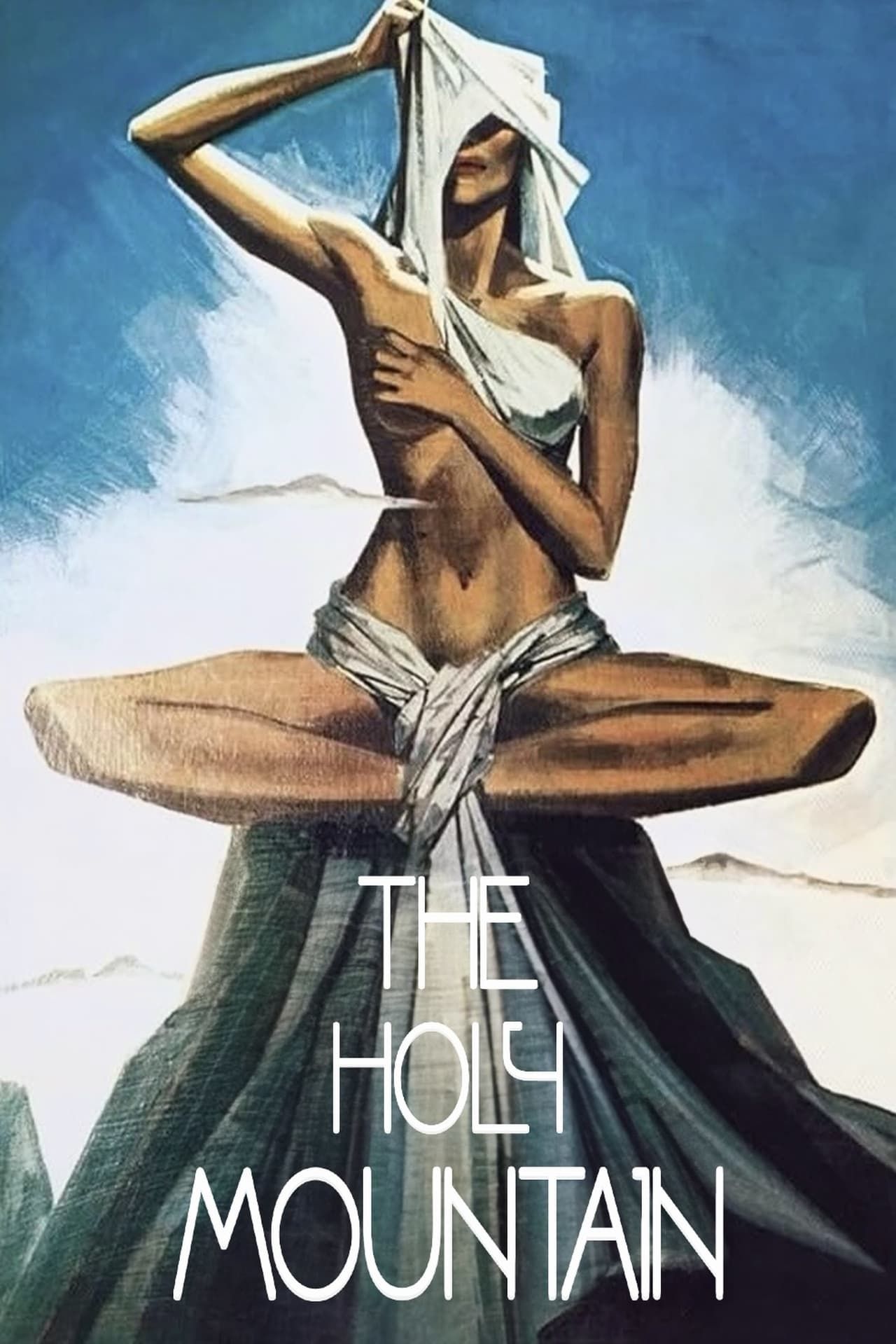
The Holy Mountain
- Release Date
-
November 29, 1973
- Runtime
-
114 minutes
- Director
-
Alejandro Jodorowsky
- Producers
-
Allen Klein, Robert Taicher
6
‘A Clockwork Orange’ (1971)
Directed by Stanley Kubrick
This one is probably a little more well-known than the other titles mentioned here, but still, there is something timelessly provocative and horrifying about A Clockwork Orange. It’s another film without any easy answers, being an exploration of crime and injustice in a bleak dystopia (of sorts) where horrific crime is handled with potentially just as horrific methods by those who enforce the law.
You get many scenes of horrific crimes, especially in the film’s first half, and then the second half explores the consequences that come with the state brainwashing those who commit the most terrible of crimes. In A Clockwork Orange, pretty much everyone (or at least those on both sides of the “conflict”) is some level of evil, and a different kind of evil, and it makes the whole film troubling to watch and later think about. All by design, of course, but that doesn’t make it any easier to experience.
5
‘Lilya 4-ever’ (2002)
Directed by Lukas Moodysson
Calling Lilya 4-ever confronting would be a massive understatement, since it pulls no punches in its story of what a young teenage girl has to do to survive after her mother abandons her. She’s misled by some older people and eventually becomes the victim of human trafficking, and it’s explored in a deathly serious way. There’s no Liam Neeson to save the day Taken-style, in other words.
A film can take a “pull no punches” approach while also feeling exploitative or sensationalist, but Lilya 4-ever is not that. It just feels raw and honest, and makes the tragic story it tells feel moving and empathetic, but not cathartic. It has to be blunt about the reality of it all, and it’s unnervingly successful at doing just that.
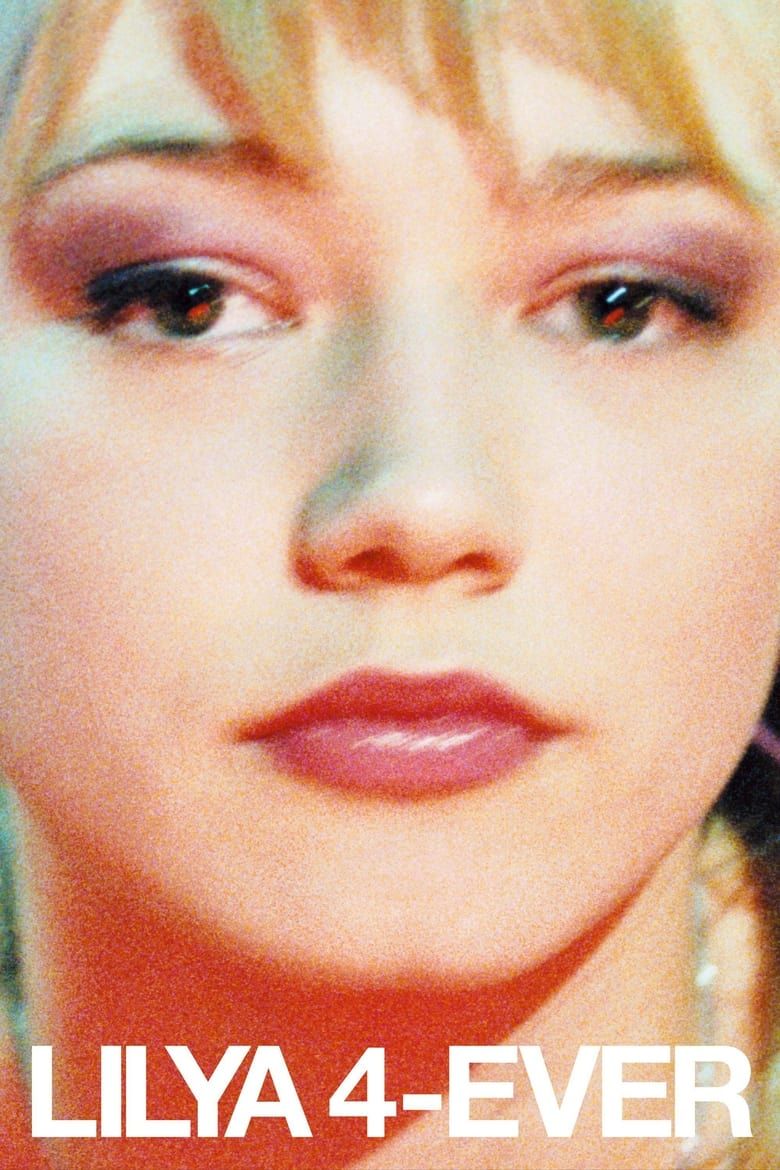
Lilya 4-ever
- Release Date
-
August 23, 2002
- Runtime
-
109 minutes
- Director
-
Lukas Moodysson
- Producers
-
Lars Jönsson
4
‘The Piano Teacher’ (2001)
Directed by Michael Haneke
Like the aforementioned Alejandro Jodorowsky, Michael Haneke has built a filmography that’s filled with despairing and disturbing movies, with The Piano Teacher being potentially his most troubling. Well, calling it his most psychologically devastating is a big call, when he’s also directed the likes of Funny Games (both versions) and The White Ribbon, but it’s definitely a contender.
It’s technically a romance film, but it’s not romantic, being about the relationship that forms between a young man and a rather intense older woman who is the titular piano teacher. It’s sort of like Harold and Maude, if Harold and Maude didn’t have any comedy in it and was also more extreme in terms of what it was willing to show on screen. It’s hard to imagine anyone coming away from this feeling better than they did right before the film started.
3
‘I Saw the Devil’ (2010)
Directed by Kim Jee-woon
I Saw the Devil is about as harrowing and intense as a movie about revenge could be, and you’d expect the average revenge movie to be pretty tense stuff by default, you know? It has a simple premise, but explores it with a unique ferocity over the course of almost 2.5 hours, being about a game of cat and mouse between a serial killer and a determined agent who wants to bring him down for personal reasons.
Like with A Clockwork Orange, neither side can be considered good in any way, as even if one starts the film clearly worse, the extent the other goes to when it comes to finding “justice” quickly crosses a line. And so what you’re left with is a movie that’s disturbing both for its story and themes, and its content, with I Saw the Devil being one of the most violent films of its era.
2
‘The Cook, the Thief, His Wife & Her Lover’ (1989)
Directed by Peter Greenaway
A classic of sicko cinema, The Cook, the Thief, His Wife & Her Lover has a shocking number of shocking things to show you, all jammed into approximately two hours. The four titular figures are wrapped up in a story that involves abuse, infidelity, murder, and revenge, alongside some other things that are probably not PG to talk about, so instead they’ll just be vaguely acknowledged like so. If you’re eating while reading, you’re welcome.
But The Cook, the Thief, His Wife & Her Lover is also surprisingly beautiful, with the contrast between horror/bloodshed and the artistic images making for a fascinating viewing experience. It’s just not an easy-to-watch one, regardless of where you fall on the “comfortable to disturbed” spectrum, but director Peter Greenaway probably wouldn’t have it any other way.
1
‘Happiness’ (1998)
Directed by Todd Solondz
It’s hard to talk about everything in The Cook, the Thief, His Wife & Her Lover without getting too graphic, but with Happiness, it’s hard to talk about pretty much anything in it without getting graphic. No taboo subject is off limits in this movie, and everything is explored quite openly; again, without being exploitative, but there’s nothing here that’s sugar-coated or likely to go down easy.
Happiness does all this while also technically being a dramedy, and one of the most challenging out there without a doubt. It’s kind of a contradiction, because Happiness is a very good movie, but it’s also a movie that’s exceedingly hard to recommend. Even admitting you’ve seen it can make one feel sort of guilty, but it’s brave and willing to go to places pretty much no other American movies have gone. Those qualities are hard to deny, for better or worse.
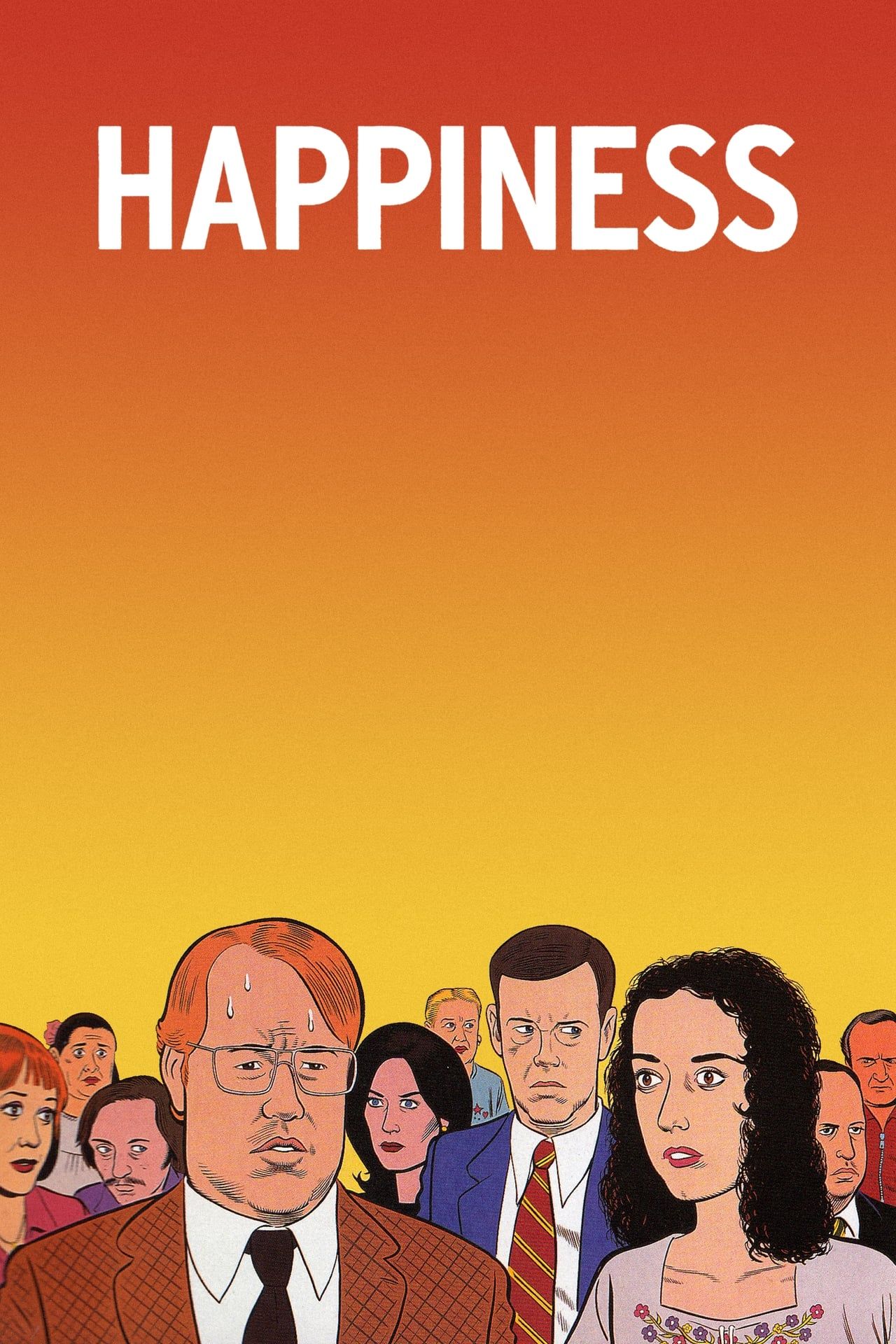
Happiness
- Release Date
-
October 11, 1998
- Runtime
-
139 Minutes
